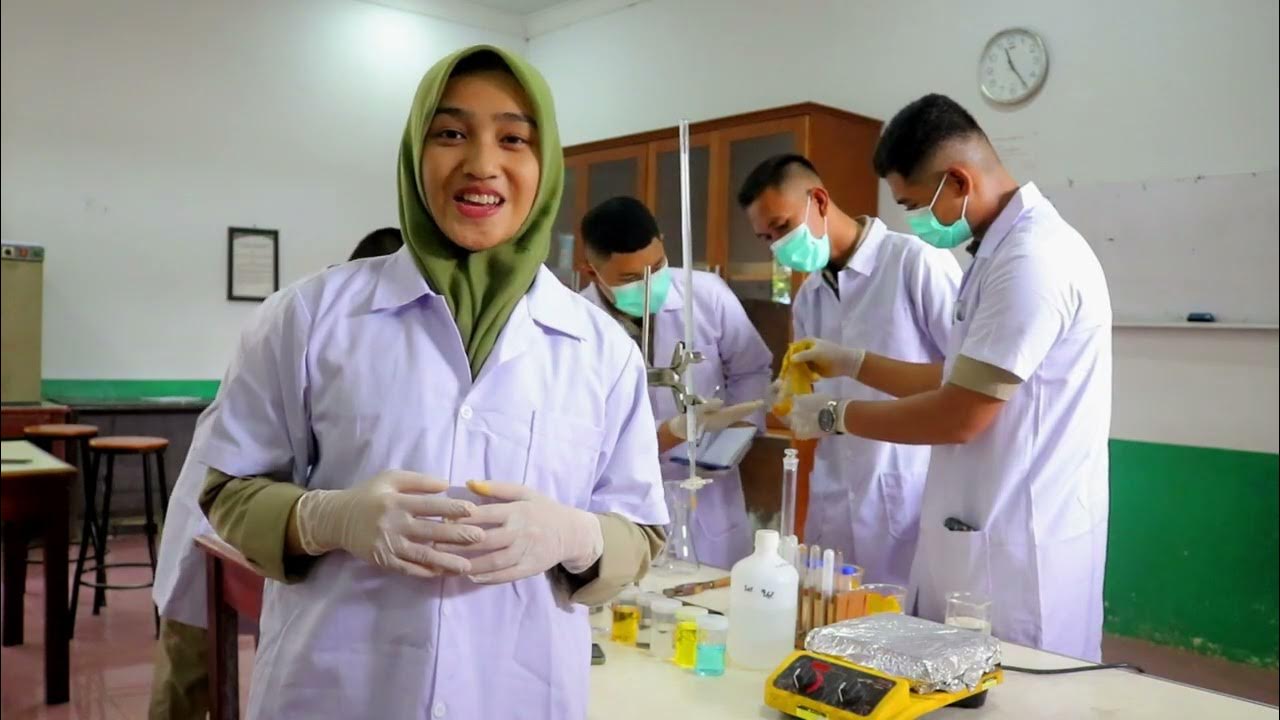Peremajaan Sawit Rakyat membutuhkan reformasi Tata Kelola
Summary
TLDRThis script discusses the challenges and opportunities related to Indonesia's palm oil industry, specifically focusing on the 'sawit rakyat' (smallholder palm oil). It highlights the issues faced in the replanting program, such as bureaucratic complexity, lack of coordination among institutions, and challenges with land certification. Despite Indonesia's position as the world's largest palm oil exporter, the script suggests the need for a unified regulatory body, similar to Malaysia's Malaysian Palm Oil Board (MPOB), to streamline governance and improve efficiency in managing this crucial sector.
Takeaways
- 😀 Sawit rakyat (smallholder palm oil) has experienced significant growth in Indonesia, with 42% of the country's total palm oil plantation being managed by smallholders.
- 😀 In 2024, palm oil contributed $14.43 billion to Indonesia's exports, making it the largest exporter of palm oil globally, contributing 10-11% of non-oil and gas exports.
- 😀 Despite the significant contribution of palm oil to the economy, the replanting program for smallholders has struggled to meet its targets.
- 😀 The replanting program, launched in 2017, has consistently underperformed, with execution rates often below 50% and major issues in meeting ambitious targets.
- 😀 Challenges in replanting include complex coordination between various government agencies, cumbersome verification processes, and legal issues regarding land certification.
- 😀 Around 3 million hectares of smallholder palm oil plantations are in forest areas, complicating land certification and preventing participation in the replanting program.
- 😀 A lack of effective coordination between ministries and institutions results in delays and inefficiencies in executing the replanting program.
- 😀 Farmers often face challenges in understanding complex administrative procedures and lack adequate technical assistance from relevant authorities.
- 😀 Malaysia's palm oil sector is more effectively managed through a single authority, the Malaysian Palm Oil Board (MPOB), which oversees the entire palm oil supply chain from upstream to downstream.
- 😀 The speaker advocates for the establishment of a dedicated, integrated authority in Indonesia to manage, regulate, and develop the palm oil industry more effectively, ensuring improved coordination and streamlined processes.
Q & A
What is the importance of palm oil to Indonesia's economy?
-Palm oil is a significant contributor to Indonesia's economy, with an export value of approximately 14.43 billion USD in 2024. It accounts for about 10-11% of the country's non-oil and gas exports, making Indonesia the largest exporter of palm oil in the world.
What is the main challenge with the smallholder palm oil replanting program in Indonesia?
-The main challenge is the low realization of the replanting targets. Since the program's inception in 2017, execution has been below expectations, often due to complicated coordination, complex administrative processes, and issues related to land legality and certification.
Why is the replanting program for smallholder palm oil farmers difficult to implement in Indonesia?
-Several issues contribute to the difficulty, including complex coordination between multiple ministries, lengthy and complicated verification processes, lack of land certification for many smallholders, and regulatory barriers, especially for those in forest areas.
What is the role of the Ministry of Agrarian Affairs and Spatial Planning (ATR) in the palm oil replanting program?
-The Ministry of ATR is responsible for land certification. However, there are challenges in coordinating land ownership certification, especially for palm oil farmers whose lands are in forested or disputed areas, delaying their participation in the replanting program.
How does Malaysia manage its palm oil sector differently from Indonesia?
-Malaysia has a centralized approach through the Malaysian Palm Oil Board (MPOB), a single entity with broad regulatory authority over the entire palm oil value chain. This includes oversight of production, marketing, quality control, and research, providing a more streamlined governance structure compared to Indonesia's fragmented system.
What specific issues do smallholders face when trying to participate in Indonesia's palm oil replanting program?
-Smallholders face challenges such as complex administrative procedures, lack of understanding about the replanting process, issues with land legality, and a lack of proper technical guidance. Additionally, the lengthy verification process involving multiple government agencies hampers progress.
What is the impact of the fragmented governance structure in Indonesia's palm oil sector?
-The fragmented governance structure in Indonesia, with various ministries and institutions overseeing different aspects of the palm oil industry, leads to poor coordination and inefficiencies. This hampers the effective implementation of key programs like the replanting initiative.
What are the suggested reforms for improving Indonesia's palm oil industry management?
-The proposed solution is the creation of a single, integrated authority to manage and regulate the palm oil sector in Indonesia. This body would handle everything from land certification and replanting programs to quality control, research, and policy implementation, much like Malaysia’s MPOB.
What are some of the legal barriers that prevent smallholders from accessing palm oil replanting funds?
-A significant barrier is the lack of legal land certification. Many smallholders do not have proper land titles, particularly those farming in forested areas, which disqualifies them from receiving funding for the replanting program. This is further complicated by land conflicts and unclear ownership.
What role do government institutions like the Ministry of Agriculture and the Ministry of Environment and Forestry play in the palm oil replanting process?
-The Ministry of Agriculture is responsible for developing policies and providing technical support to smallholders. The Ministry of Environment and Forestry regulates environmental concerns, particularly those involving forested land and sustainability practices, which are key to obtaining the necessary permissions for replanting.
Outlines

Cette section est réservée aux utilisateurs payants. Améliorez votre compte pour accéder à cette section.
Améliorer maintenantMindmap

Cette section est réservée aux utilisateurs payants. Améliorez votre compte pour accéder à cette section.
Améliorer maintenantKeywords

Cette section est réservée aux utilisateurs payants. Améliorez votre compte pour accéder à cette section.
Améliorer maintenantHighlights

Cette section est réservée aux utilisateurs payants. Améliorez votre compte pour accéder à cette section.
Améliorer maintenantTranscripts

Cette section est réservée aux utilisateurs payants. Améliorez votre compte pour accéder à cette section.
Améliorer maintenant5.0 / 5 (0 votes)






